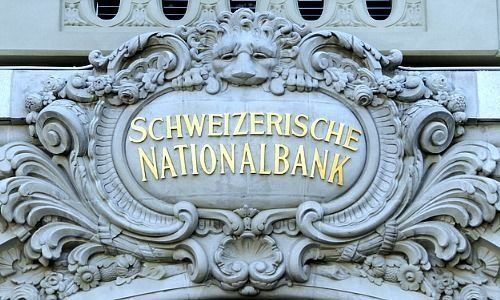Switzerland's central bank is introducing a new interest rate to replace the Libor. The change doesn't lift negative interest rates which have prevailed for more than four years.
The Swiss National Bank, or SNB, is saying goodbye to the three-month Libor, which it has used since the late 1970s to steer monetary policy, it said in its quarterly assessment on Thursday. The change comes after the rate-rigging scandal over Libor, which cost banks including UBS billions to set aside.
Swiss policymakers have opted instead for the SNB policy rate, which they will use to communicate their monetary policy decisions. The new rate signifies the level at which it wants the market rate Saron, or Swiss Average Overnight, to stand. Saron is an average rate published daily based on real interest paid (the Libor rate is based on what bankers register). The SNB said the Saron is most representative of short-term money market rates.
Transition to Saron Is Urgent
Saron will be the reference rate for countless financial products from 2022. In January, Switzerland's financial regulator warned banks to get moving on the changeover, which is expected to cost big banks roughly $400 million. On Thursday, Andrea Maechler, one of the three SNB policymakers, urged banks to speed up the introduction of products based on the Saron.
«The Libor is still heavily used. That has got to change!,» Maechler said at the central bank's press conference in Bern. The work to move products over from the Libor to the Saron was «extremely important,» and Switzerland as a small open economy relied upon being closely adapted to global markets, she argued. The Libor will cease to be actively supported in 2021.
Swiss Property Warning
The toolkit change means nothing for the SNB's policy of negative interest rates, which it has hewed to and deepened since 2015. «...Expansionary monetary policy remains necessary against the backdrop of the current price and economic developments,» the SNB argued. The Swiss franc remains overvalued, and its status on foreign exchange markets remains fragile.
Investors traditionally flock into currencies like the franc, Japanese yen, or U.S. dollar in uncertain times. Thus, the franc teeters precariously with political or economic developments around the world. The SNB also renewed its warnings on the Swiss property market, which it continues to view as overheated and ripe for a correction.


































